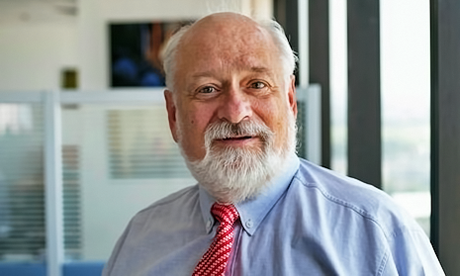In J.R.R. Tolkien’s saga The Lord of the Rings Treebeard the Ent (a tree herder) tells the hobbits Merry and Pippin of the estrangement of the Ents and Entwives.
Their differing views of happiness had moved them farther and farther apart until they lost all contact with each other to the loss of both since there were no longer any Enting offspring.
“We believe that we may meet again in a time to come, and perhaps we shall find somewhere a land where we can live together and both be content,” Treebeard says.
“But it is foreboded that that will only be when we have both lost all that we now have. And it may well be that that time is drawing near at last.”
In many parts of Christendom, the same story is being re-enacted. Differing views of what the Church can and must be are driving people farther and farther apart.
Among the managers of the Catholic part of the Church, there are not a few who seem determined to drive away anyone who looks anew at old moral positions (especially those related to sex).
Those new thinkers generally believe that Christianity is not about morality, but is a living and growing relationship with God in Jesus Christ that is the foundation and norm for morality.
Traditionalists move farther and farther from the mainstream, in some cases going so far as to question the authority and even the orthodoxy of the pope.
Others, fed up with scandals, cover-ups, closed-mindedness, clericalism, irrelevance and refusal to accept the working of the Holy Spirit in Vatican 2 and the People of God, simply withdraw from involvement.
Is it possible that “we may meet again in a time to come, and perhaps we shall find somewhere a land where we can live together and both be content”?
Well, nothing is impossible with God. However, the rest of Treebeard’s words may say something important about how God achieves the impossible: “that will only be when we have both lost all that we now have.”
When we look at the history of the divine relationship with God’s people, we tend to overlook the middle of the process.
We see Moses lead the Hebrews out of Egypt and through the miraculously opened sea.
Then, we jump ahead to the Promised Land as if there were not a period of 40 years of wandering in the desert (looking, as some Israelis quip, for the one place in the Middle East without oil). Egypt ends, but the Promised Land does not begin until after the long period of nothing when those who came out of Egypt are dead.
Or look at our Sacred Triduum. We mark Good Friday by hearing the account of the Passion and we venerate the Cross. Then, we jump ahead to Easter, using Holy Saturday as a day to decorate the church for the Vigil and Sunday. We forget the tomb.
But what if the 40 years in the desert and Jesus’ time in the tomb are actually key events in God’s bringing about something new?
Can it be that actually being dead, being nothing, is the means by which God prepares us for something truly new, whether it be a promised land or new life?
It is increasingly obvious that parts, at least, of the Church are in Good Friday mode, undergoing a painful and confusing death, a crucifixion.
Attempts are made to hide from the situation or mitigate it by developing some sort of rubber nails. They are already failing.
Death increasingly appears inevitable, and attempts to forestall it may in fact be contrary to the will of God who may have something totally new in store for us.
But that unimaginable something will, like the Promised Land or the Resurrection, come through death, the end of what was.
And not just dying. It will come from being dead. There will be no shortcut from the cross we live with now to a new life. All shall be cleared away.
What will being dead look like? What will it feel like? What shall we do while the Church is dead?
During the centuries when Christianity was banned in Japan and being found out as a Christian meant torture and death, Christians had no clergy, no hierarchy, no facilities, no guidance and no contact with other communities.
The Church was dead.
The only thing those Christians had was their commitment to each other.
Violating that commitment would bring them rewards from the persecutors. Yet, believers remained faithful to one another and to their understanding of Christ.
Instead of attempting to thwart what may be God’s will by postponing the dying, we should concentrate on building communities of mutual support that can define themselves by faithfulness not to forms but to Christ and one another.
As Treebeard said, “it may well be that that time is drawing near at last.”
- William Grimm is a missioner and presbyter in Tokyo and is the publisher of the Union of Catholic Asian News (UCA News).
- Republished with permission.
News category: Analysis and Comment.




